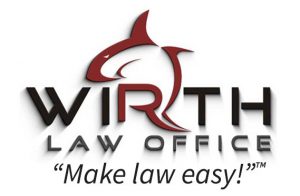Consult an Attorney When Assistance Needed
Video Transcribed: Are active efforts required in anything besides a juvenile deprived case? Well, yes. Hi, my name is Ryan Cannonie. I’m a lawyer in Tahlequah. And one thing that comes up sometimes in cases like guardianships or adoptions is the term active efforts.
Now, if you’ve seen any of the videos on the other channels, specifically, the deprive videos I’ve done, you know I’ve talked about active efforts in the Indian Child Welfare Act a lot. And if you haven’t seen those, go check them out. In fact, there’s tons of great content on multiple channels on our firm site, just answering all types of questions from various attorneys with a lot of knowledge and experience.
But if you aren’t familiar with active efforts, under the Indian Child Welfare Act, any time you remove a child from their parent’s home, you have to follow a certain set of guidelines, statutes that are both federal and state. So when this happens, one thing that has to be done is you have to prove there were active efforts to reunify the family.
Now, what does that mean? Well, if you’re doing active efforts to reunite the family, you’re trying to make it so you don’t have to get guardianship or get an adoption. And I know this sounds kind of odd. It sounds basically against what you want. If you’re filing and paying for an attorney, you want adoption, or if you’re filing for guardianship, why would you also need to prove that you tried to prevent this?
 Well, that’s part of the Indian Child Welfare Act. It’s a safeguard based on years of assimilation, doctrines, and things of that nature that started stripping many tribal children of their cultural heritage.
Well, that’s part of the Indian Child Welfare Act. It’s a safeguard based on years of assimilation, doctrines, and things of that nature that started stripping many tribal children of their cultural heritage.
So now when you do one of these cases, when you hire me, hire an attorney to do adoption or a guardianship when we get in there, we actually have to sometimes submit an active efforts letter, sometimes just prove active efforts, but we have to show that there were active efforts to reunite the family.
So what are some active efforts? Well, this is where things get a little more complicated. There’s no actual definition, a list of here is what is an active effort, here’s what’s not. It’s kind of one of those I’ll know it when I see it kind of things. And some judges know it when they see it. And some you have to go above and beyond, or some just kind of take a little bit of effort. So it just depends on where you’re at, what your tribal representative is saying, and what the judge says.
But some good rules of thumb are if there’s visitation that you’re offering to help transport if you’re doing a guardianship and you talk about the fact that there is not a relationship between the father and child, well, then you’re helping and counseling, trying to get the father involved into that counseling, or mother, whoever the parent is, or both parents.
If there are substance abuse issues, you’ve offered to take them to outpatient treatment. You’ve offered to help them. Anything you’re doing to try to help them correct the issue so that they can reunify the family is going to be considered an active effort.
Now, that doesn’t mean they have to take you upon it. It doesn’t mean you have to go into their house and drag them out kicking and screaming. It means that you are making the effort to prevent what you’re trying to do, basically.
So if you have questions about active efforts, and you probably will, because I’ll be honest, a lot of attorneys have questions about active efforts, then please give us a call. You can also go to our website, Tahlequahattorney.com.
We can walk you through your situation, talk to you about guardianship, talk to you about adoption, look at the pros and cons of both, and what type of active efforts you’re probably going to have to do to satisfy the Indian Child Welfare Act.








